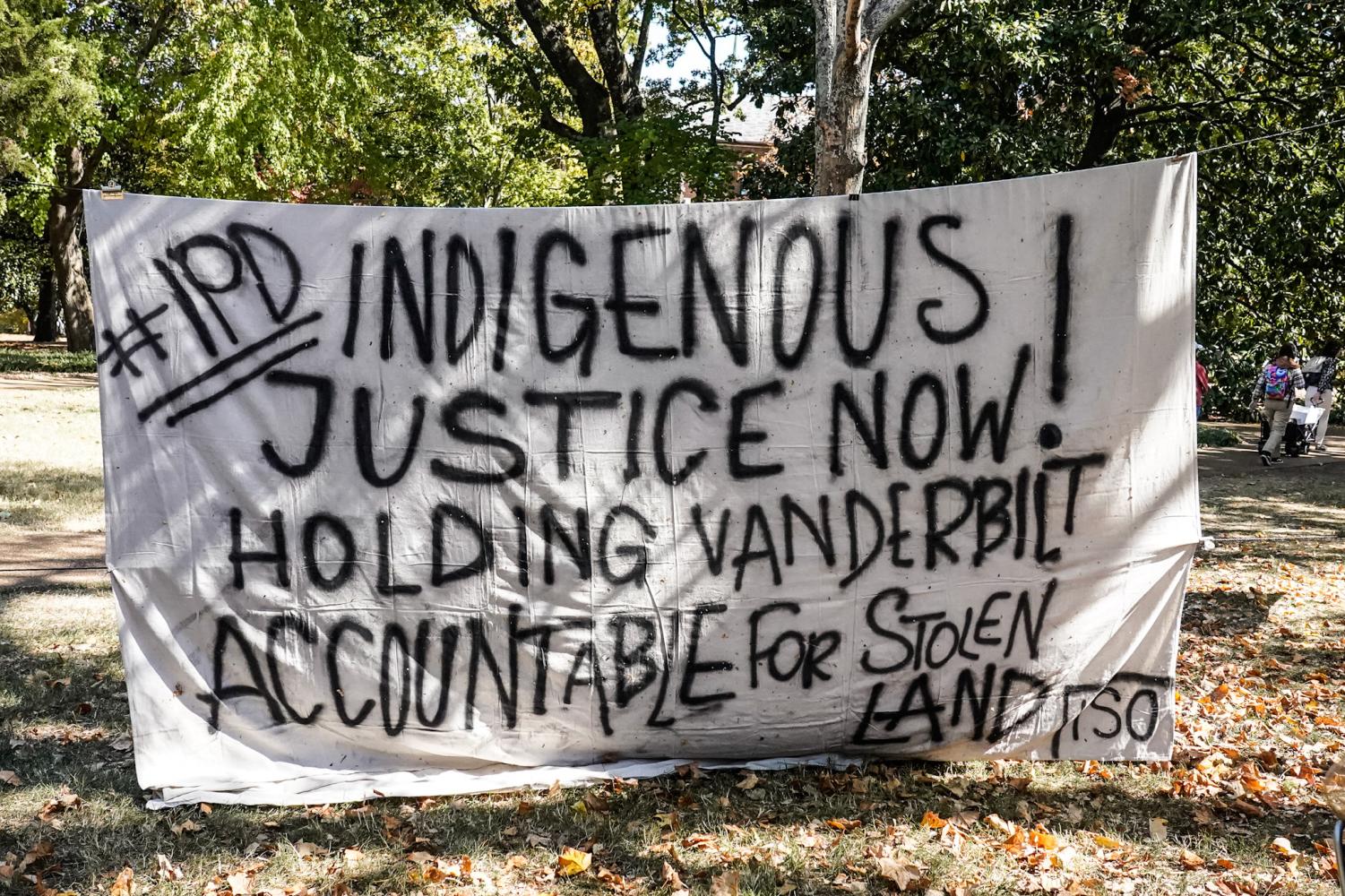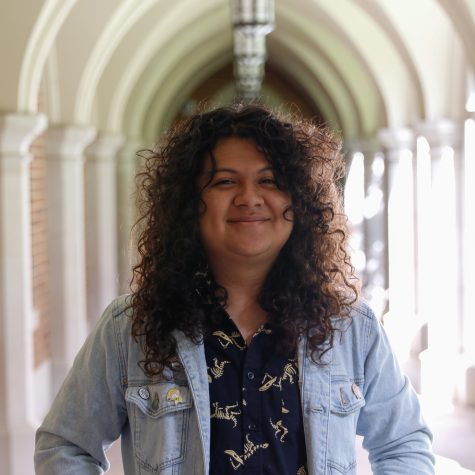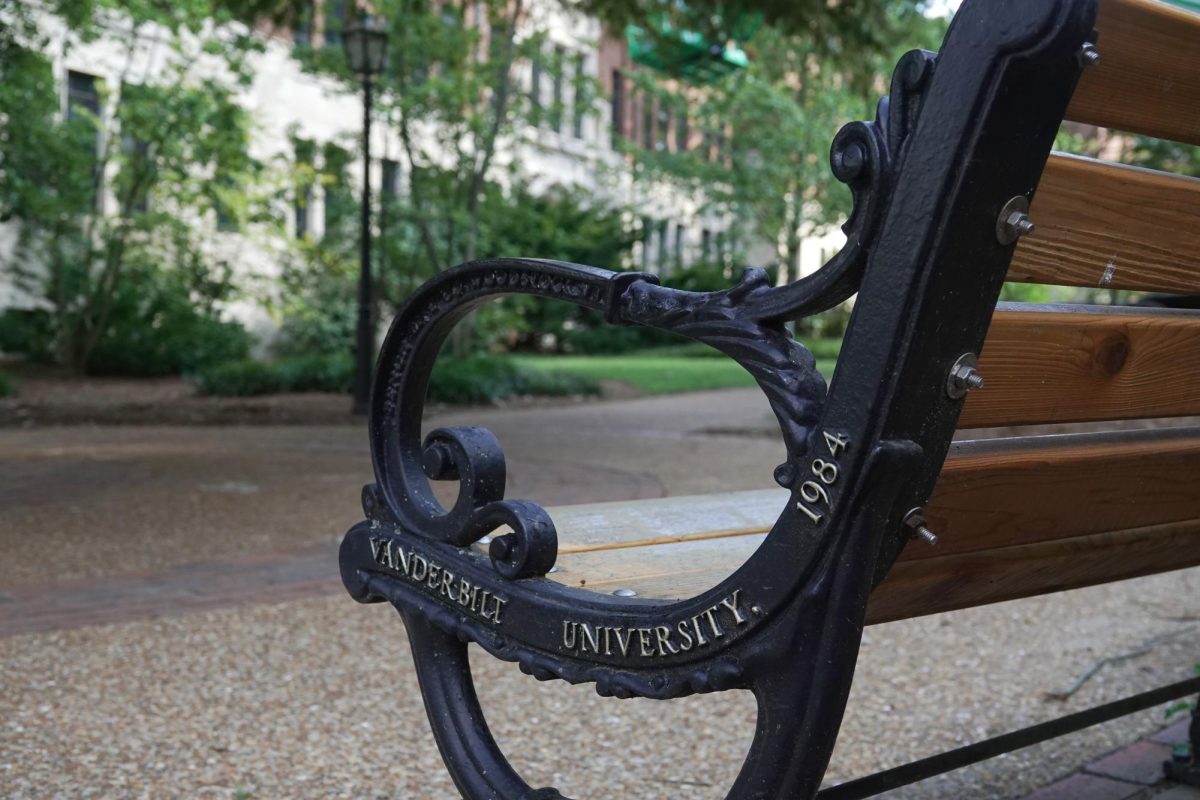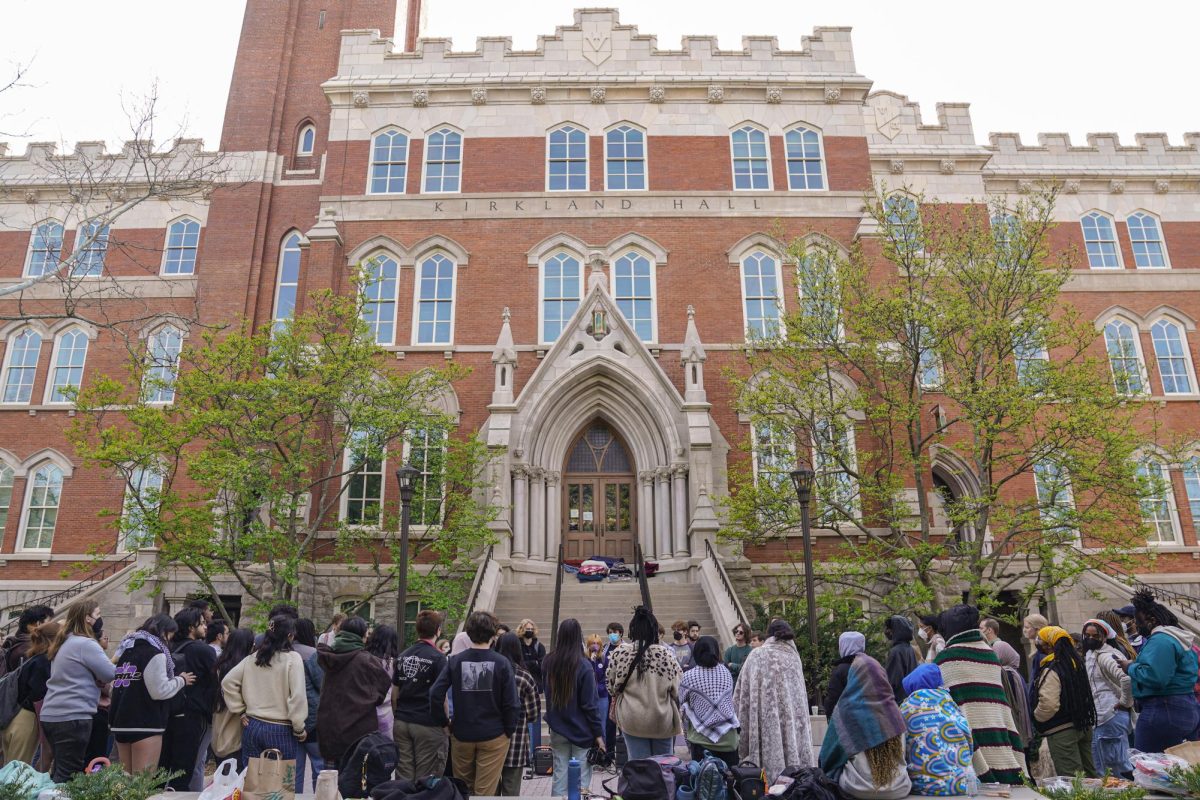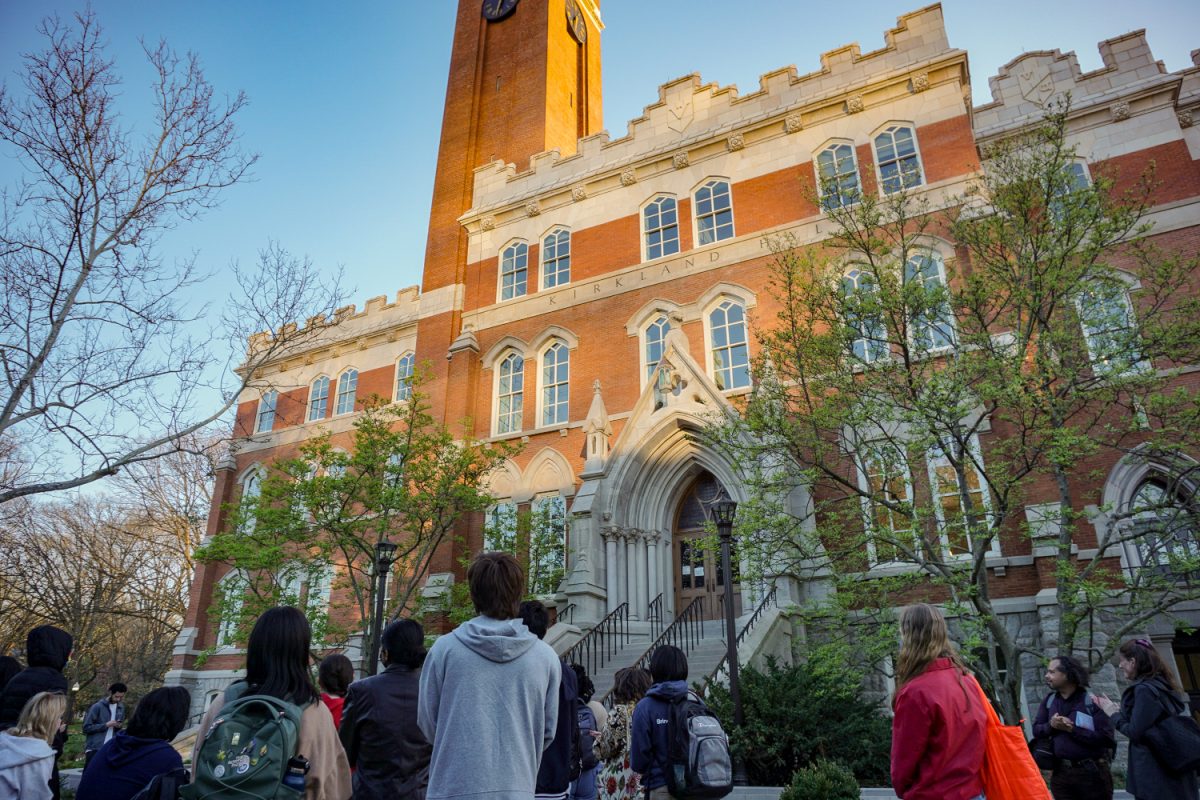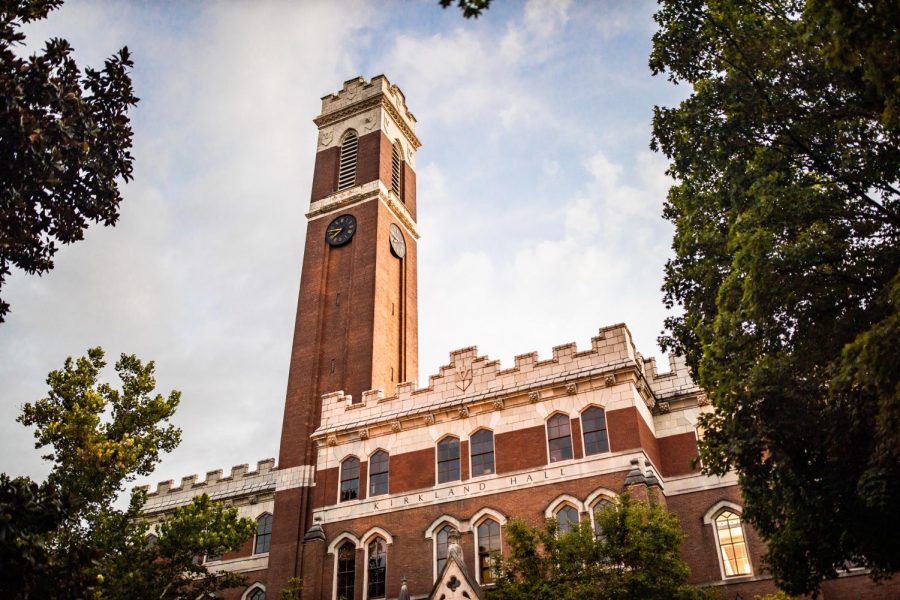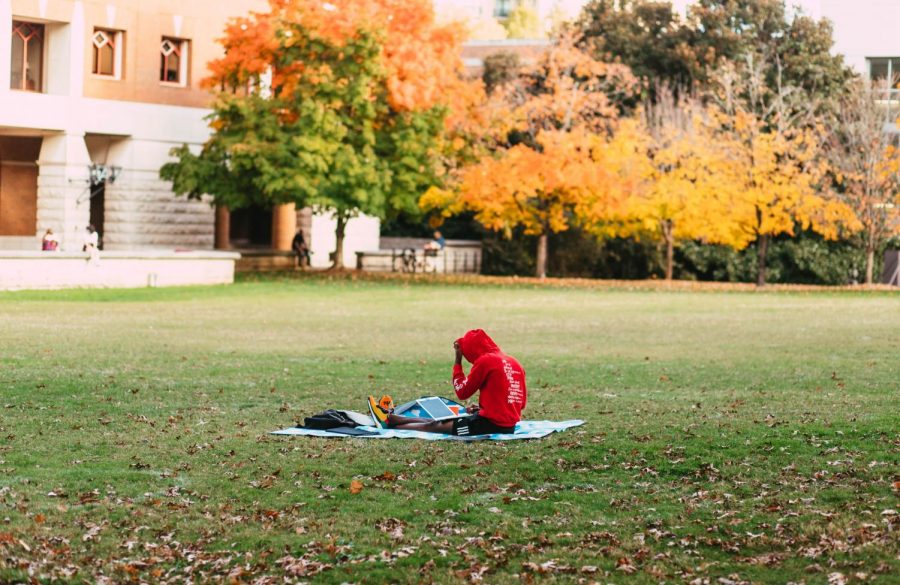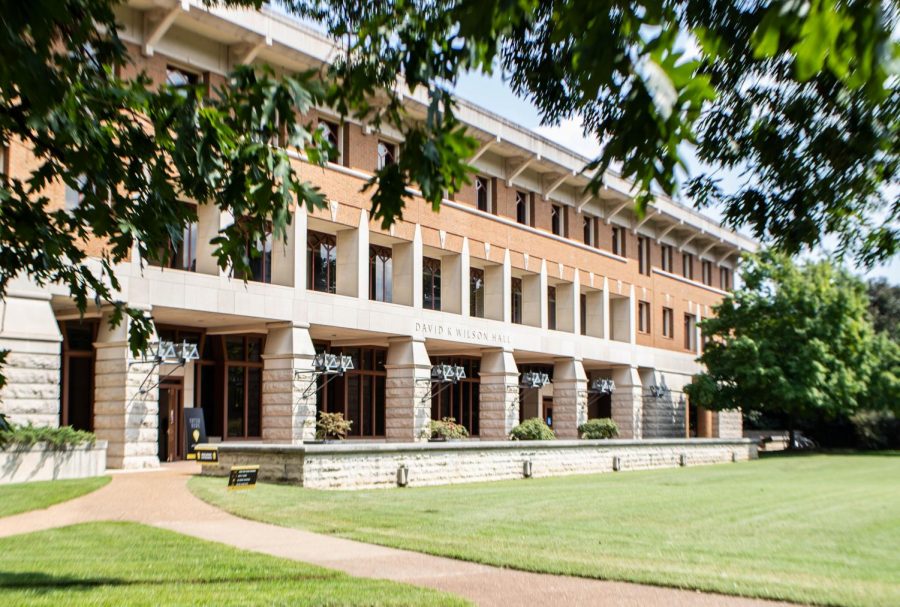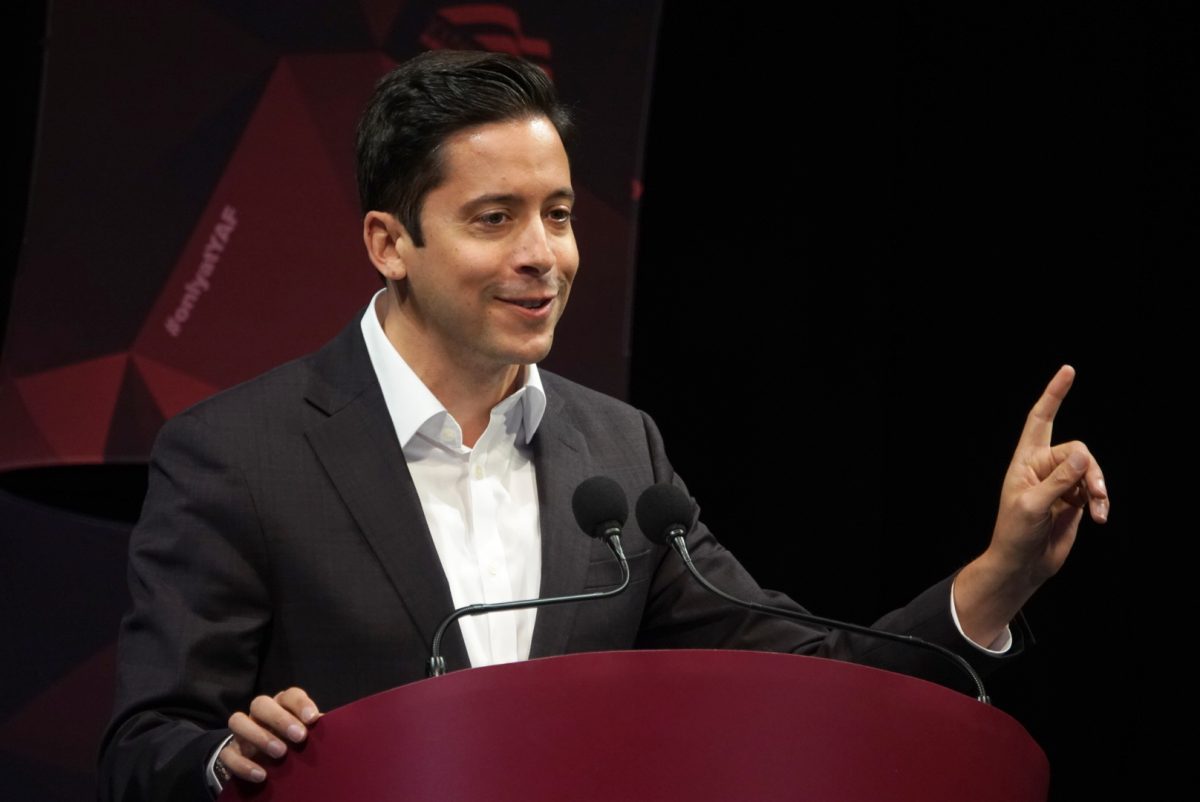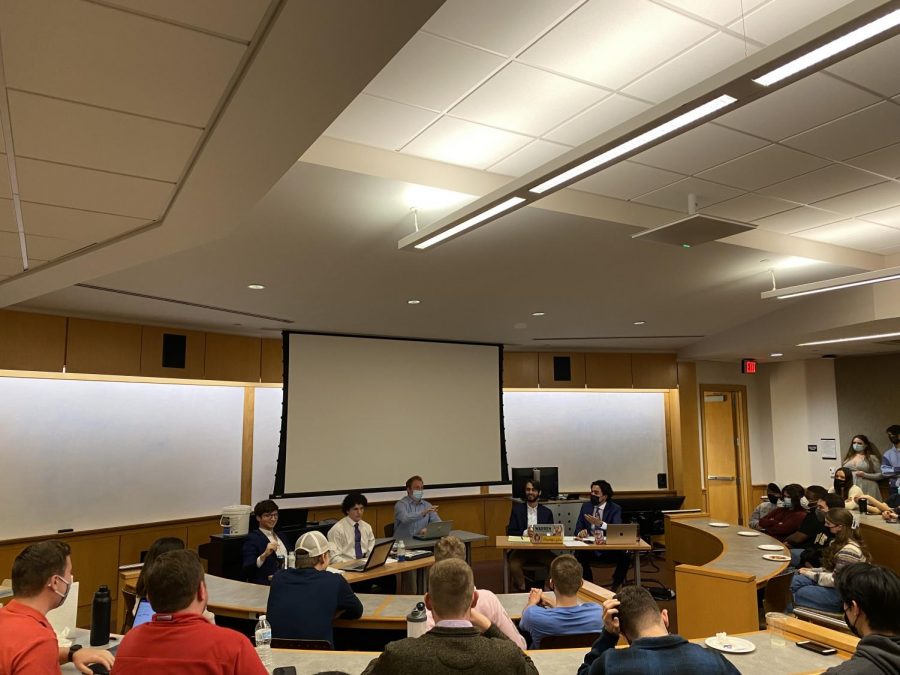We, the past and present co-presidents of the Indigenous Scholars Organization, are writing this piece to hold accountable Vanderbilt administrators that have continuously stifled efforts to institutionalize a land acknowledgment at Vanderbilt University.
It is unacceptable that, after nearly four years of tireless advocacy from student leaders, Vanderbilt has still failed to adopt a land acknowledgment. This situation is in spite of the fact that we as students have done the work to not only create the land acknowledgment but also to advocate and explain to Vanderbilt administrators why a land acknowledgment is a critical step forward toward true inclusivity.
A land acknowledgment is a statement that acknowledges Indigenous people as the original stewards of this land, affirming Indigenous sovereignty in the present day. Land acknowledgments do not exist in the past tense or outside historical context. They are meant to remind us of the Indigenous peoples who lived here since time immemorial, those that were forcibly removed from their homelands and their descendants today.
In a state like Tennessee where no federally recognized tribes exist, it is crucial to acknowledge the Indigenous peoples of this place who have faced widespread genocide under United States policies, policies of which Vanderbilt is a direct beneficiary. The Indian Removal Act of 1830 forcibly removed over 125,000 Native Americans from their homelands on a 5,000-mile expulsion march toward small land allotments west of the Mississippi River. This forced journey—known as the Trail of Tears—was extremely inhumane and tragic, with thousands of Native people dying before reaching their final settlements. As a result, Native Americans make up less than 0.5% of Tennessee’s total state population today. Likewise, Indigenous students are less than a fraction of a percent of Vanderbilt’s student population. We, the authors, are part of that population, representing the Indigenous communities of Hawai’i (Gabby Guarna), Tarahumara/Tzotzil Maya (Dante Reyna) and Tonga (‘Ana Fonongava’inga Stringer).
In 1873, only 40 years after the Trail of Tears, Vanderbilt was officially established. Vanderbilt owes its existence to the removal of Native peoples from middle Tennessee. While sitting on stolen Native land, Vanderbilt has chosen to celebrate Jackson, a genocidal figure, via the Andrew Jackson Chair in American History, which Dr. Sarah Igo currently holds. It still fails to officially acknowledge Indigenous Peoples’ Day on its academic calendar of term dates and holidays or via university programming, despite the City of Nashville officially recognizing it back in 2017.
By refusing to adopt a land acknowledgment, Vanderbilt is perpetuating Indigenous erasure and violence toward Indigenous peoples.
Contrary to ignorant and childish notions pushed by Chancellor Daniel Diermeier that adopting a land acknowledgment would result in legal complications over land rights, some of Vanderbilt’s prestigious peer universities, including Yale, Stanford, Cornell, Northwestern and Princeton, have adopted official land acknowledgments at the university level. Yet, as these universities know, it is not enough to simply recognize that land was stolen. A land acknowledgment must be followed with an actionable commitment to the betterment of Indigenous communities, such as establishing community centers for Indigenous peoples, creating Indigenous Studies majors and recruiting Indigenous faculty and scholars into supportive networks.
It is utterly embarrassing and disappointing that Vanderbilt, a leading research institution that prides itself on the advancement of knowledge and commitment to inclusivity, has failed to even take the first step toward acknowledging the history of the very land it sits upon.
Summary of ISO efforts so far
For the past three years, student leaders from ISO (formerly known as NATIVe) have advocated for an institutionalized land acknowledgment to be adopted at Vanderbilt. In the Fall 2019 semester, Vanderbilt Student Government passed a bill in support of a university-adopted land acknowledgment. Since then, the Multicultural Leadership Council and many other student organizations have adopted the reading of a land acknowledgment before major meetings and events. Multiple faculty members have also included an acknowledgment in their syllabi and email signatures.
However, when it comes to taking any institutional action with the land acknowledgment, ISO has faced multiple barriers from the faculty senate, Diermeier and other Vanderbilt administrators.
In January 2021, ISO’s land acknowledgment was proposed to the faculty senate via a motion made by Willaim Luis, the then co-chair of the diversity, equity and inclusion committee. This motion, if passed, would affirm the use of a land acknowledgment at Vanderbilt. At the meeting, Diermeier voiced legal concerns about recognizing the sovereignty of Native peoples. As a result, Senator Mark Magnuson motioned to recommit the land acknowledgment to the DEI committee and to potentially vote on it at a later date. It was decided that a committee would need to do more research into the statement before the senate could vote on it. Archived faculty senate meeting minutes from meetings prior to October 2021 are no longer publicly available.
In February of 2021, ISO released an open letter of support, asking students to co-sign our land acknowledgment to indicate to the faculty senate and Diermeier that the student body widely supports the adoption of an official land acknowledgment. Quickly after releasing the statement, we met with Dr. Catherine McTamaney, the then-chair of the faculty senate, who told us that the land acknowledgment would not be recommitted to the faculty senate in April. At the beginning of the Fall 2021 semester, we met again with McTamaney, who said the land acknowledgment—for an unspecified reason—was not on the list of charges for the DEI committee during the 2021-22 academic year.
To this day—two and a half years later, no action on the land acknowledgment has been taken at a faculty senate meeting to our knowledge.
In November of 2021, Stringer and another ISO member spoke briefly and informally with Diermeier at his annual Thanksgiving event about how celebrating Thanksgiving on campus without recognizing the harm the holiday causes to Indigenous peoples of the Americas is insensitive to those individuals. Once we began to discuss the struggles Indigenous students face at Vanderbilt, Diermeier turned to the other, non-Indigenous student at the table and asked them how they liked Nashville, ignoring us. He completely dismissed Indigenous students, even rolling his eyes when we eventually revealed that we were representing ISO. To be disregarded at an event celebrating the genocide of Indigenous peoples by the head of the very university we attend was shameful, and it reveals the unofficial policy of purposeful ignorance that Diermeier has taken when it comes to Indigenous issues at Vanderbilt.
With no progress being made to adopt a university-wide land acknowledgment, the then-Co-Presidents of ISO and co-authors of this editorial—Guarna (‘22) and Stringer (‘22)—emailed all Vanderbilt deans last March to encourage them to support the use of a land acknowledgment within their schools. We asked them to engage in a dialogue with us to discuss the possibility of adopting a school-wide policy mandating the reading of the land acknowledgment before all major events; posting the acknowledgment in a visible place on their school’s official website; distributing resources for all faculty to learn about the land acknowledgment. We requested that the deans respond to us within a week to confirm whether or not they would be open to this dialogue. Over six months later, we still have not received a single response from any of the deans.
On April 17, the Center for Latin American, Caribbean, and Latinx Director Celso Castilho notified a member of ISO via email that, after speaking with the Dean of the Commons Dr. Melissa Gresalfi about implementing a land acknowledgment within Commons, he was told that it’s against university policy to do so. Upon clarification, Gresalfi specified that the land acknowledgment cannot be posted to the Commons website because no official land acknowledgment has been adopted by the university. Similarly, students in academic departments have told us on multiple accounts that department-wide land acknowledgments could not be adopted as no official Vanderbilt University land acknowledgment exists.
After four years of student struggle, no clear updates, half-answers and a lack of transparency, we strongly believe that Vanderbilt, influenced by the politics of Diermeier and other administrators, has already decided that they will not recognize the Indigenous peoples of this place.
Why this matters
Indigenous students continue to face racism and anti-Indigenous sentiment as part of their Vanderbilt experience. We are forced to lunge ourselves over systemic barriers at an institution like Vanderbilt, where virtually no support systems exist to uplift Indigenous identities and you can count the number of Indigenous faculty on one hand. Making up less than 0.8% of the overall student body, we are forced to advocate for ourselves in already hostile environments and to educate upper-level Vanderbilt administrators on basic elements of Indigenous history. We are forced to sit by and take racism from our peers, misunderstanding from our mentors and professors and institutional politics.
Nowhere is this anti-Indigenous sentiment more harmful and apparent than in the ongoing and continuous stalling of the land acknowledgment. Our ask for the land acknowledgment is small; we have not asked the administration for large sums of money or other favors. We are simply asking for Vanderbilt to take the first step and officially recognize the land it sits upon, but it continuously fails to do so and has done so for years.
To us, this lack of action is a very clear indication that our voices, identities and histories do not matter at Vanderbilt.
Diermeier and other administrators are complicit in Indigenous erasure and oppression here in middle Tennessee. By refusing to recognize the Indigenous history of the very land on which Vanderbilt sits, Diermeier has chosen to uphold the colonial legacy of President Andrew Jackson and his violent attempts to completely erase all Indigenous peoples from this land. This type of silence– of choosing to ignore the pleas of Indigenous students at Vanderbilt for recognition –is violence. It should not be tolerated at such a prestigious university like Vanderbilt, which prides itself in its forward-thinking yet continues to repeat the racist and anti-Indigenous sentiments of days past.
Indigenous peoples are not going anywhere. Our calls for a land acknowledgment and basic recognition will only get stronger over time. As we approach the 150th anniversary of Vanderbilt’s founding, we strongly urge Chancellor Diermeier, administrators and faculty who have stifled efforts to pass an institutionalized land acknowledgment to examine their complicity in Indigenous erasure and ongoing settler-colonialism here in Nashville.
This cannot wait a day longer.
Land acknowledgment
We collectively acknowledge that Vanderbilt University occupies the ancestral lands of the Cherokee, Shawnee, Choctaw, Chickasaw, and Creek peoples. Today, these people have nation boundaries in Oklahoma, North Carolina, and Mississippi, after the Indian Removal Act of 1830 led to the forced removal of southern tribes to the west of the Mississippi River. In particular, the University resides on land ceded in the Treaty of Hopewell (1785-1786). We also acknowledge and pay respect to enslaved Africans and their descendants, whose forced labor fueled the remaking of this land into what Nashville is today. We recognize and support the Indigenous individuals and communities who live in Nashville, and those forcibly removed from their Homelands. By offering this land acknowledgment, we affirm Indigenous sovereignty and will work to hold Vanderbilt University more accountable to the needs of American Indian and Indigenous peoples.
Editor’s note: The university responded to The Hustler’s request for comment regarding the allegations made in this piece against the university and Diermeier. This response in full can be found below.
“Part of a university’s job is to create the conditions for individuals to argue civilly about the issues that matter to them. At a moment of extraordinary polarization in our national discourse, universities are the last, best place where people with different backgrounds and points of view can engage in productive and civil discourse.
That’s why at Vanderbilt we encourage and facilitate the creation of spaces where these kinds of conversations can happen—whether that’s in a classroom, an op-ed or a residential college. We also promote academic scholarship and community engagement to examine, address and explore important societal issues, including many that can be divisive, underpinning the importance of academic freedom and free expression to our university culture.
Just as essential, we insist that debate be respectful. We welcome and relish a good argument, and, at the same time, each of us is obligated to remember that, despite our differences, we are all members of one community, with shared goals and a shared purpose. Resorting to name-calling, and casting people who don’t immediately side with you on an issue as contemptible is not conducive to constructive conversation and certainly does not lead to meaningful learning, teaching or development of new ideas. It is also inconsistent with Vanderbilt’s community creed, a student-initiated statement of our university community’s values, which includes being open to engage with one another on ideas and be respectful in our interactions with one another.
Regarding our annual Thanksgiving dinner, the event is a cherished tradition. It’s an opportunity for students who can’t travel back to their homes during the fall break, including many international students, to gather with others during what is otherwise a quiet and often lonely time on campus. The dinner represents the connections Vanderbilt forges among our students, faculty and staff.”
Dr. Rebecca Swan, current chair of the faculty senate, also responded to The Hustler’s request for comment regarding the allegations made in this piece against the faculty senate. This response in full can be found below.
“The Faculty Senate, through its committee structure, continues to consider issues of importance to the faculty in the shared governance model in which we participate.”


